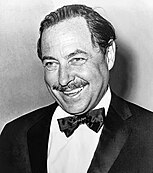Tennessee Williams's Human Design Chart
1/3 Sacral Generator**Tennessee Williams: A Human Design Perspective**
Tennessee Williams, born Thomas Lanier Williams III on March 26, 1911, in Columbus, Mississippi, was an iconic American writer, poet, and playwright renowned for his emotionally charged and dramatic works. His most celebrated plays include “The Glass Menagerie” (1945), “A Streetcar Named Desire” (1947), “Cat on a Hot Tin Roof” (1955), and “The Night of the Iguana” (1961). Over his prolific career, Williams received numerous accolades, including four New York Drama Critics Circle Awards and two Pulitzer Prizes, solidifying his status as one of America’s greatest playwrights alongside Eugene O’Neill and Arthur Miller.
From a Human Design perspective, Williams was a Generator, which is characterized by a powerful life force and the ability to respond to the world around them. His Inner Authority was Sacral, indicating that he made decisions based on gut feelings and responses rather than mental deliberation. This aspect of his design likely played a significant role in his creative process, allowing him to tap into his emotions and experiences to craft his compelling narratives.
Williams’ Profile of 1/3 reflects a deep desire for knowledge and understanding, coupled with a trial-and-error approach to life. The 1st line in his profile signifies a foundational need for security and a thirst for information, while the 3rd line embodies a willingness to learn through experience, often leading to resilience in the face of challenges. This combination is evident in Williams’ journey as he navigated personal struggles, including his health issues and family dynamics, which deeply influenced his writing.
His Incarnation Cross, the Right Angle Cross of Service (17/18 | 58/52), further illustrates his commitment to serving others through his art. The themes of service and responsibility are woven throughout his works, often exploring the complexities of human relationships and the emotional turmoil of his characters. His channels, including 61-24 (the channel of awareness), 18-58 (the channel of judgment), 3-60 (the channel of mutation), and 9-52 (the channel of focus), highlight his ability to bring forth profound insights and transformations through his storytelling.
Williams’ early life was marked by challenges, including a difficult relationship with his father, Cornelius Coffin Williams, who disapproved of his writing aspirations. A sickly child, he found solace in literature and writing, a passion ignited when his mother gifted him a typewriter on his eleventh birthday. Despite facing significant obstacles, including a year of illness that left him with lasting health issues, Williams persevered and eventually found success in the literary world.
After moving to New York in 1939, Williams adopted the name “Tennessee Williams” and quickly gained recognition for his unique voice and perspective. His success on Broadway began with “The Glass Menagerie,” which not only secured his financial stability but also established his reputation as a leading playwright of his time. Throughout his career, Williams remained true to his artistic vision, even as theater trends shifted, demonstrating the Generator’s inherent ability to respond authentically to their inner calling.
Williams’ personal life was tumultuous, marked by deep emotional struggles, particularly following the death of his partner, Frank Merlo, in 1961. This loss plunged him into a decade-long depression, exacerbated by his reliance on alcohol and drugs. Despite these challenges, he continued to write, channeling his pain into creativity. His works often reflect the themes of grief, loss, and the search for connection, resonating with audiences on a profound level.
Tennessee Williams passed away on February 24, 1983, in Manhattan under circumstances that remain somewhat mysterious. His legacy endures through his powerful plays and the emotional depth he brought to the stage, making him a seminal figure in American theater. As a Generator with a Sacral Inner Authority, Williams exemplified the importance of responding to life’s challenges with creativity and resilience, leaving an indelible mark on the world of literature and beyond.
Discover More Famous People
Browse and analyze over 55,000 public figures and celebrities.
Ra Uru Hu
5/1 Manifestor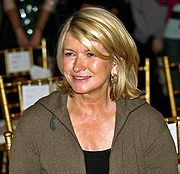
Martha Stewart
4/6 Manifestor
David Lynch
4/6 Generator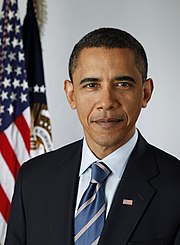
Barack Obama
6/2 Projector
Steve Jobs
6/3 Generator
Vladimir Putin
5/1 Manifestor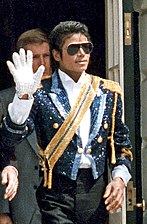
Michael Jackson
1/3 Projector
Kim Kardashian
3/5 Generator
Marilyn Monroe
6/2 Projector
Ariana Grande
2/4 Projector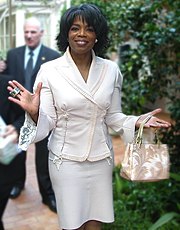
Oprah Winfrey
2/4 Generator
Johnny Depp
2/4 ManifestorWhat is HumanDesign.ai and how does it work?
Curious what makes Tennessee Williams tick? HumanDesign.ai instantly maps their exact birth data into a fully interactive clickable bodygraph chart, letting you hover or tap every center, channel, and gate for plain-language explanations. Bella, the platform’s built-in AI guide, adds context in real time, translating complex mechanics into everyday insights so you can see how Tennessee Williams’s strengths, challenges, and life themes play out on-screen.
The same tools are waiting for you. Generate your own Human Design Chart in seconds, open a library of 2000+ suggested questions, and chat with Bella as often as you like to decode your design, daily transits, and even relationship dynamics.
Want to compare energies? Save unlimited charts for friends, family, or clients, then ask Bella to reveal compatibilities, composite patterns, or coaching tips, all in one conversation thread.
Start free with core features, or unlock our Personal and Pro plans for deeper dives: unlimited Q&A, celebrity chart search spanning 55,000+ public figures, white-label PDF reports, branded content generation, and a professional profile with built-in booking for practitioners. Whether you’re exploring your own potential or guiding others, HumanDesign.ai delivers an ever-expanding toolbox of AI-powered insights—no spreadsheets, no jargon, just clarity at your fingertips.
Ready to see yours? Signup for FREE today!

